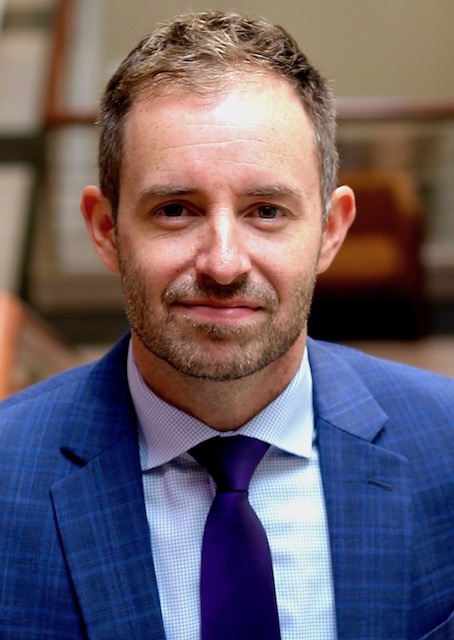As the Public Health Emergency triggered by the COVID-19 pandemic has come to an end, one wonders whether legal changes brought about by the pandemic—specifically, regulatory changes that have greatly impacted Americans’ health care access over the last three years—will endure. While the use of telemedicine—defined as “the delivery of healthcare from a distance using electronic information and technology”—during the pandemic greatly broadened access to important health care services for homebound patients, it also provided an opportunity for new ways to exploit the system and commit health care fraud. In her 2022 article Telemedicine Scams, Professor Katrice Bridges Copeland documents the fraudulent practices that impacted telemedicine and provides prescriptions for combatting it as we move into the post-pandemic future.
As the changes brought about by the last three years may lead to a permanent regulatory reorganization, Copeland’s observations are incisive and suggestions are vital. Indeed, as regulators seek to prioritize goals in a post-COVID era and providers and patients grapple with continued reliance on telemedicine to solve access challenges, the changes brought about in health care delivery are likely here to stay. As Copeland writes, “[o]nce the Public Health Emergency is over, it will be impossible to put telemedicine back into a box and shut the lid.”
Professor Copeland’s article—the first to address fraud in telemedicine—is a holistic and complete treatment of a pernicious problem in America’s health care system. She accomplishes her goals through four main sections.
In Part I, Copeland documents what telemedicine is and how it is “uniquely situated to address some of the most pressing problems in health care” by providing savings in time and cost to patients. Although state licensing laws and reimbursement uncertainty provide headwinds to its adoption, Medicare and Medicaid cover telemedicine and have established waivers through the duration of the Public Health Emergency (PHE) that have made it much easier for providers and patients to use. For instance, as part of the PHE, restrictions on the type of doctor that can rely on telemedicine, and the requirement of a preexisting doctor-patient relationship in order to utilize telemedicine, have been waived. In Part II, Copeland summarizes health care fraud efforts and the statutes—the False Claims Act and the Anti-Kickback Statute—that are the government’s chosen tools to go after telemedicine fraud.
In Part III, Professor Copeland walks through the structure of a typical telemedicine fraud scheme involving a marketing company, Medicare and Medicaid recipients, and a laboratory, durable medical equipment company, or telemedicine company. She provides examples of recent scams and investigations, including the “largest health care fraud takedown in [DOJ] history,” which resulted in charges against 345 defendants who collectively caused $6 billion in losses.
In discussing why some trusted employees end up succumbing to fraudulent schemes and others do not, Professor Copeland references the Fraud Triangle theory. This theory identifies three factors to explain and predict fraudulent behavior: incentives or pressure to commit fraud, a perceived opportunity, and a rationalization of the act. This theory can be used to explain why certain individuals—in the midst of a waiver of rules that makes telemedicine fraud more lucrative, and the calculation that detection is extremely low during the PHE—are attracted to fraudulent schemes. She uses the Fraud Triangle theory throughout her suggestions section to assess various policies’ likelihood of success.
Finally, in Part IV, Professor Copeland proposes policy measures to balance fraud prevention with the expanded access to care patients have seen with telemedicine services. She does not argue for any new criminal statute to go after fraud, but instead examines three types of potential preventative measures.
The first would be to reinstate the rule that requires a preexisting doctor-patient relationship as a condition of using telemedicine services. Noting that these types of limitations could potentially do more harm than good, she posits that an exception to protect rural and underserved communities in need of expanded health care access could be a solution.
The second measure would be to limit telemedicine reimbursement to providers in an accountable care relationship. While she believes that this approach could potentially hold promise, she dismisses a suggestion that telemedicine reimbursement should be limited to providers in advanced alternative payment models, citing concerns about its negative impact on access.
The third measure she considers is whether Medicare should add any new screening requirements regarding telemedicine in an effort to better limit fraud, such as patient verification and cross-checking requirements. She concludes that efforts like this may have some impact and should be pursued.
Professor Copeland’s important scholarly contributions in the area of health care fraud have all been impactful, and her newest piece is no exception. By adroitly focusing on the potential threats of a major new delivery mechanism such as telemedicine, she has made us aware of the next major frontier in health care fraud and abuse enforcement. In an area with such hope and promise in addressing America’s health care access challenges, and with the Public Health Emergency coming to an end, her warnings must be heeded to enable telemedicine to flourish while preventing the worst frauds from taking root.








